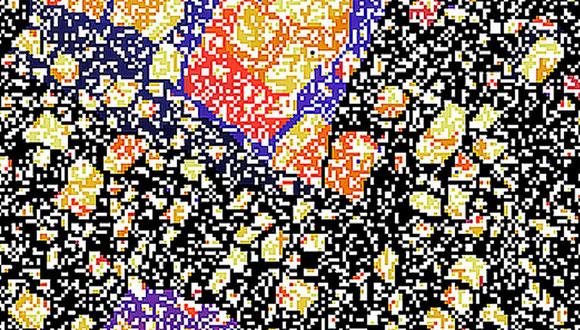Biological & Soft Matter Seminar
Elisha Haas, BIU
Title:
The protein folding problem: where information shapes the physics of bio-polymers: Non local interactions direct the process of molecular self-assembly.
Abstract:
Life on earth sustain in the physical world thanks to the work of molecular machines which couple entropy producing and entropy consuming processes. The main “invention” that enables such processes is the invention of the biochemical heteropolymers. The nucleic acids carry information and the proteins are the machines of the production lines. The proteins are hetero-polymers which undergo folding/unfolding transitions between two very dynamic end states: disordered and ordered. The folding transition of most proteins is complex but very fast, a matter of milliseconds to seconds. This cannot be a stochastic search and we are trying to identify general principles of the mechanism that enable this efficient and fast self-assembly mechanism.
Our experimental approach is based on combination of site directed fluorescent labeling of pairs of sites in chains of model proteins and time resolved non-radiative resonance energy transfer (trFRET) measurements in the ensemble and the single molecule modes. Global analyses of series of trFRET measurements yield series of distributions of intramolecular distances and their fast fluctuations. By coupling the FRET measurements with relaxation methods (the “double kinetics” experiments) we detect the order of formation of selected intramolecular interactions and subdomain structures. We find that counter-intuitively the first step in the construction of the complex fold of the protein backbone is the formation of few non local interactions which are followed by formation of local interactions. Genetic engineering methods are used for identification of specific information elements which direct this phase of the mechanism.
a-synuclein is a protein made of a chain of 140 residues of amino acids which is present in the healthy brain of every human. It is known to be in fully disordered state under physiological conditions and in some cases it undergoes misfolding and then it is involved in the initiation of Parkinson disease. Using the above methods we mapped subtle degree of order in some sections of the protein backbone and we are studying their role as misfolding initiation sites. Such sites are expected to be targets for drugs that would hopefully stabilize the disordered state of the a-synuclein molecules and reduce the suffering of many people at advanced age.
Seminar Organizer: Guy Yaacoby


